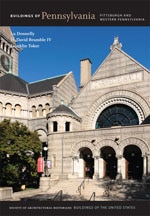McConnellsburg, in the heart of Great Cove Valley east of Tuscarora Mountain, lies at the intersection of the Lincoln Highway (U.S. 30) and U.S. 522. It was founded by Daniel McConnell in 1786, whose family arrived in the Great Cove in the 1740s and purchased hundreds of acres. McConnell and his brother William established an inn along the packhorse trail from Philadelphia that traversed their property. McConnell laid out the town with 196 lots, introduced fifty-foot-wide streets and twelve-foot-wide alleys, set aside a commons, and designated the springs for public use. The town square was located one block north of the packhorse trail to keep it free from commercial pressures along the highway. McConnellsburg was incorporated as a borough in 1814. Three years later, the packhorse trail became the Chambersburg-Bedford Turnpike, and the town's growth was irrevocably tied to the development of the road. The improved road generated wagon shops, tanneries, stores, and mills. The Racket Store of 1906, a hardware store at 207 Lincoln Way E, delightfully preserves its early-twentieth-century appearance both inside and out. The store was named for New York wholesaler Rouss Racket. In 1914, the old Route 30 became part of the Lincoln Highway, a coast-to-coast paved road that stimulated automobile touring. New businesses catering to the needs of automobiles were established along its length. In the 1960s, U.S. 30 was rerouted around the perimeter of the town. As a result, the town has preserved much of its nineteenth- and early-twentieth-century appearance, and its historic architectural integrity.
Writing Credits
If SAH Archipedia has been useful to you, please consider supporting it.
SAH Archipedia tells the story of the United States through its buildings, landscapes, and cities. This freely available resource empowers the public with authoritative knowledge that deepens their understanding and appreciation of the built environment. But the Society of Architectural Historians, which created SAH Archipedia with University of Virginia Press, needs your support to maintain the high-caliber research, writing, photography, cartography, editing, design, and programming that make SAH Archipedia a trusted online resource available to all who value the history of place, heritage tourism, and learning.

